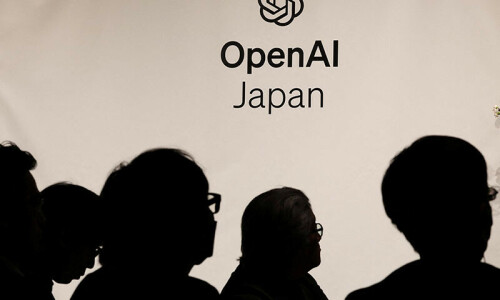LONDON: In order to repair UK’s reputation as a high-risk jurisdiction for money laundering, the government is introducing legislation to force offshore companies holding UK properties to reveal the true or “beneficial” owners.
Failing to do so could lead to up to five years in prison and unlimited fine, according to the Registration of Overseas Entities Bill released for public consultation, which will close on Sept 17.
Dawn Investigations: The Pakistanis who have offshore properties worth millions
The owners’ names will appear on a corporate registry, making it easier for law enforcement to seize assets linked to criminals or bought through “dirty money”.
The proposed bill is not country-specific and is likely to hit the large number of Russian oligarchs who have bought a large number of properties during the last few years but Pakistanis having UK properties through offshore companies will also be compelled to declare ownership.
Names will appear on corporate registry, making it easier for law enforcers to seize assets linked to criminals or bought through ‘dirty money’
The anonymous ownership of properties via offshore companies is perfectly legal, but it has also been a subject of concern for housing campaigners concerned about an influx of foreign money forcing up house prices.
The bill defines a beneficial owner as someone who holds more than 25 per cent of the shares of an entity; controls more than 25 per cent of the entity’s voting rights; can appoint or remove the entity’s directors; or exerts “significant influence or control” over the entity.
The draft legislation introduces a series of new penalties for those seeking to circumvent the register. There will be a ban on a foreign entity selling or leasing a property without declaring its beneficial owner and those failing to comply will face jail of up to five years and an unlimited fine.
Similarly, the new legislation stipulates up to two years of imprisonment and an unlimited fine for individuals who will fail to register or attempt to file false information.
“The UK is known around the world for its open and dependable business environment and this reputation is maintained by keeping under review our required high standards,” UK Business Minister Richard Harrington said in a statement released to the media.
“That is why we are introducing the world’s first public register which will expose the ultimate owners of overseas shell companies, giving authorities the information, they need to come down on criminals who launder their dirty money through the UK’s property market and to seize the proceeds of crime,” he added.
Lord Duncan, the UK Minister for Scotland, also added his voice to welcome the new move. “For too long criminals have been able to use the property industry as a front for investing dodgy funds, hiding dirty money and evading the law. This stops now,” he said.
“Most people who invest in property across the UK do so fairly, and legitimately, but the UK government is clear that there is no longer any room for those that seek to exploit the system to hide,” he added.
Transparency campaigners, some of whom have battled current rules for several years, welcomed the legislation.
“These proposals finally put to paper a long-promised tool that will help lift the veil of secrecy over property ownership that corrupt individuals exploit here. After several years of campaigning and advocacy we are pleased that the first steps to introducing this important register have been made,” said Duncan Hames, the director of policy at Transparency International UK.
“For too long the UK has welcomed corrupt money and very often it has been our property market that has provided a hiding place. This bill should eventually leave corrupt individuals one less place to stash their dirty money. Once this consultation concludes we expect the government to make this legislation an urgent priority.”
Chido Dunn, an anti-corruption campaigner at the NGO Global Witness, described the new legislation as a game-changer. “The government has finally shown it is serious about stopping criminals and the corrupt from using UK property to launder dirty cash. We’re excited to find out who really owns our cities,” she said.
This is the not the only anti-money laundering measure the UK government has taken so far. It follows the Unexplained Wealth Orders (UWOs) initiative launched earlier in the year and being rigorously pursued by the UK’s National Crime Agency (NCA), the country’s main body tasked with countering organised crime.
Introduced in January 2018, the orders force those suspected of serious crime to explain the origin of their assets, including properties worth more than 50,000 pound.
Russian oligarchs and multimillionaires are among 130 people who face having their assets frozen in a crackdown by British authorities on dirty money.
In the first reported UWO case, which has reached the high court so far, the fugitive wife of a “fat cat banker” who has spent £16m in London’s high-end departmental store Harrods is battling to keep her London mansion.
The woman, who cannot be identified for legal reasons, is challenging a demand by the National Crime Agency that she reveals the source of her wealth or face losing her British properties.
The NCA believes two houses worth 22 million pounds were bought with cash stolen by the woman’s husband while he was working for the state bank in their home country.
If the woman fails to overturn the court order, or fails to prove she is legitimately wealthy, the NCA can ask the courts to seize the homes.
Published in Dawn, July 30th, 2018












































